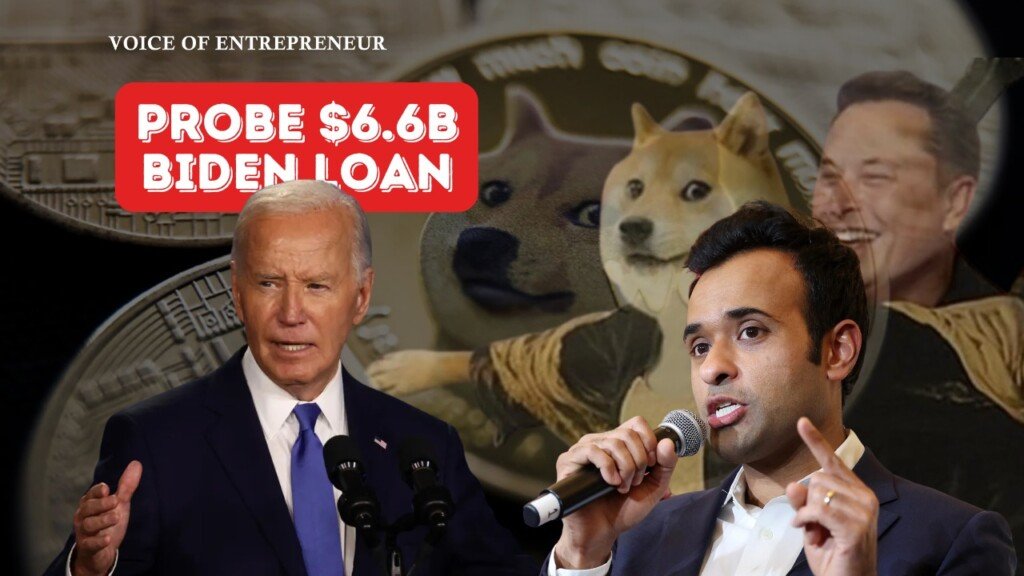Donald Trump’s newly appointed government efficiency co-czar, Vivek Ramaswamy, has expressed his intent to scrutinize a loan approved by the Biden administration for Rivian, an electric vehicle (EV) manufacturer and competitor to Tesla.
Ramaswamy, known as the founder of several biotech ventures collectively called the “Vants,” is set to assume leadership of the quasi-official Department of Government Efficiency (DOGE) once Trump takes office. Alongside DOGE co-leader Elon Musk, Tesla’s CEO, their mission is to drastically downsize the U.S.
government by cutting regulations, reducing federal employees and correcting inefficiencies, with the goal of removing $2 trillion from the nation’s budget.
They have already singled out for cuts existing expenses for the Corporation for Public Broadcasting and Planned Parenthood—items targeted by Republicans for a long time—that now include funds to Rivian.
“Biden is dishing out $6.6 billion to Rivian for a Georgia plant that’s already been paused,” Ramaswamy wrote in a recent post. “The justification is the 7,500 jobs it will create, but that breaks down to $880,000 per job. This looks more like a political jab at Elon Musk and Tesla than sound economic policy.”
The loan is earmarked for Rivian’s second factory, planned to manufacture the R2 line of midsize EVs, positioned below the R1T pickup and R1S SUV. However, Rivian’s CEO, RJ Scaringe, postponed construction in March to preserve financial resources.
This loan has sparked speculation about political motivations. Boosting Rivian, a struggling Tesla competitor, could undermine Musk, a pivotal figure in the recent Republican resurgence. The Democratic governor of California has also notably excluded Tesla from a new state plan extending EV subsidies, further fueling the narrative.
Tesla, a prior recipient of federal funding, repaid its loan in full, ahead of schedule, and with interest. Commenting on the criticism, the Department of Energy (DOE) defended its Advanced Technology Vehicles Manufacturing (ATVM) program, citing Tesla’s success as a catalyst for the EV industry.
Tesla’s repayment of a half-billion-dollar ATVM loan, signed into law by President George W. Bush in 2008, contrasts with other high-profile failures like Solyndra. Trump previously proposed eliminating funding for the ATVM program in his final 2021 budget.
Value of Auto Plants
Ramaswamy’s critique may oversimplify the situation. Vehicle manufacturing plants are highly valued industrial hubs, sustaining thousands of well-paying jobs and supporting extensive supply chains that include industries like steel, electronics, and plastics. These plants also stimulate local economies by attracting suppliers and fostering additional business investments.
Saudi Arabia’s backing of Tesla rival Lucid exemplifies this strategy. By requiring local production, the kingdom has secured investments from companies like Hyundai and Pirelli, aiming to diversify its oil-reliant economy.
Rivian’s Challenges
The Biden administration likely views Rivian as a strategic investment. Known for its rugged, American-made vehicles, Rivian appeals to adventure-oriented consumers and boasts a significant social media following. Despite this, its financial struggles persist, with losses increasing as production scales.
To address this, Rivian has revamped suppliers and optimized production processes, even pausing operations temporarily. The company’s goal for 2024 is to achieve profitability in gross margins, a critical milestone to demonstrate its viability.
Private Capital and Risk
Support for the clean energy sector often draws skepticism from Republicans, who view such interventions as government interference. Federal loans are typically reserved for nascent technologies that might otherwise fail under traditional market pressures.
While Tesla proved profitability is achievable, Rivian’s reliance on government support raises questions. Still, private investors, like Volkswagen, have shown a willingness to fund Rivian in exchange for strategic benefits, such as software access.
Debate Over ‘Corporate Welfare’
Unsurprisingly, the Wall Street Journal’s editorial board has attacked the $6.6 billion loan. They argue the Biden administration is backing a financially unstable company that has dubious creditworthiness in an already very competitive industry.
The editorial framed the decision as political instead, and, therefore, Trump’s administration would never have approved the loan. Incoming Energy Secretary Chris Wright will look at these “corporate-welfare loans” coming into office, thereby ensuring future decisions will better reflect market principles and fiscal responsibility.
